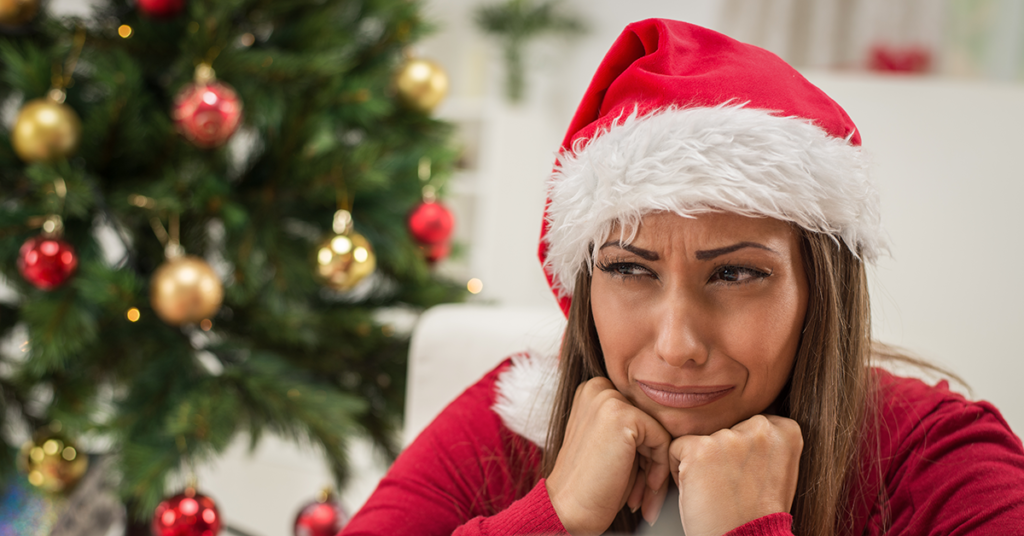 For people diagnosed with Borderline Personality Disorder (BPD), managing your emotions is a full time job. The stress and disruption of the holiday season, along with the inevitable emotional ups and downs that come from visits with family, special events, and gift-giving can add up to a stressful and challenging time for you and your loved ones. Forewarned is forearmed, though, so let’s take a peek at some of the most common pitfalls and triggers to losing control. Knowing what to avoid can be an important first step.
For people diagnosed with Borderline Personality Disorder (BPD), managing your emotions is a full time job. The stress and disruption of the holiday season, along with the inevitable emotional ups and downs that come from visits with family, special events, and gift-giving can add up to a stressful and challenging time for you and your loved ones. Forewarned is forearmed, though, so let’s take a peek at some of the most common pitfalls and triggers to losing control. Knowing what to avoid can be an important first step.
- The holidays tend to pack events, parties, dinners, and late nights into your already booked schedule. Juggling your commitments with those of your partner and/or your kids can lead to too many late nights and grayed nerves. Add in a few shopping trips and late night giftwrapping sessions and you are all set up to be exhausted.
- Getting hungry is a real trigger for becoming distressed. In addition, around the holiday season, people tend to eat at times of day and types of foods that are out of their norm. Snacking on odd items at odd hours can lead to disrupted sleep, indigestion or feeling ill, and weight gain – all of which can lead to increasing challenges managing your emotions.
- Happy hour. Happy hour can be the beginning of real unhappiness if you struggle to manage your emotions. Drinking alcohol lowers inhibitions, and impacts judgement and decision-making – long before you feel drunk or approach the legal limit. The same goes for changing your mood using other substances.
- One of the most common and most challenging triggers for people diagnosed with BPD is tolerating being around people, especially family members, with whom you’ve had past conflict. Childhood issues can get retriggered by visiting with parents or siblings, and sometimes visiting with a spouse or partner’s family can be profoundly distressing as well. Being around family during the holidays can be hard to avoid, but it’s important to recognize that as potentially healing and positive as these visits or events can be, they can also be difficult and trigger strong emotional reactions.
- Financial worries. The emphasis on gift-giving for some families can lead to financial stress and strain. For some, the pressure of wanting to be generous is a real trigger for emotional distress.
So you know what to sidestep – but how? Here are a few tried and true best practices for managing emotions year round and explore ways to adapt these strategies for the extra support that the holidays require.
- Mindfulness practices. Prioritize time each day to be quiet and calm, and try your own style of meditation. This may involve saying a calming word over and over in your mind, or looking at a serene image, such as a flower or a candle. Take time to center yourself and be still and silent every day. Make this a basic component of your self-care regimen every day.
- Plan and schedule social activities carefully. Don’t pack your weekends so full you find yourself rushing from one commitment to another. Plan in time for yourself, and practice saying no to events or social gatherings once you’ve reached a certain threshold. You may feel a little bit guilty or sad turning down an invitation, but staying in control of your emotions is worth it.
- Talk with your support team (your partner or spouse, therapist, or counselor, or other supportive people in your life) before you get stressed. Ask for help anticipating challenges, and brainstorm ways to manage tough times before they occur. Talk about decisions you’re making with your partner or spouse, especially if they involve cutting back on holiday parties or gift exchanges.
- Keep to your regular routines as much as you can. Continue to attend your exercise classes, eat well-balanced meals, and go to bed on time as much as possible. These healthy routines may get knocked off course here and there, but keep returning to what works for you: a sensible lifestyle that supports you being at your best.
- Spend some time in nature. You don’t need to carve out an entire day or backpack in the wilderness to enjoy the serenity and clarity that can come from a brisk walk outdoors on a chilly day. Rail trails, or public parks are great places to go for even a 15 minutes recharge.
- Keep a gratitude journal. It’s easy to get overwhelmed at this time of year, and lose sight of all the gains you’ve made, all the positive steps you’ve taken, and all the times you’ve done a great job managing your emotions. Carry a journal with you (it can be a small memo pad, no bigger than your phone) and jot down your successes or achievements. Write down all the ways you’ve been good to yourself and others, as well as all the things you appreciate. Then read it when you’re feeling stressed!
As a person with BPD, you probably have lots of other coping skills and strategies you’ve developed over the years. Music, artwork, hiking, or martial arts – you know what will help you feel capable and calm and ready to face whatever challenges the holidays serve up. Make a list of your own personal favorites and keep it handy to that you can remind yourself of your options when you’re feeling on edge.


